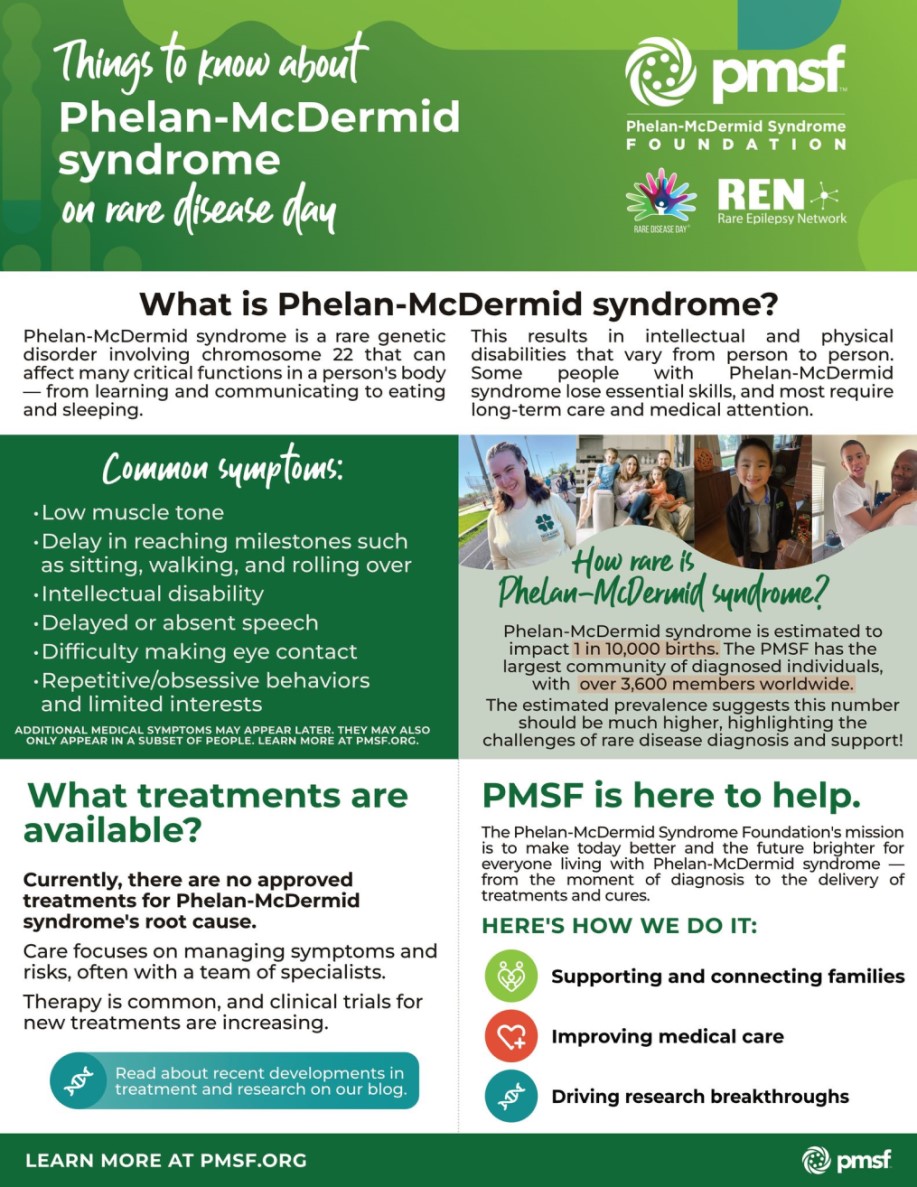
The Rare Moments
Every color tells a story, and we want to hear yours — the stories that offer fresh perspectives, inspire hope in the community, connect unexpected ideas, or simply resonate with you on a personal level.
For Rare Disease Day this February, you’ll find a curation of those stories here — The Rare Moments. Patients, families, researchers, and those dedicated to advancing rare disease treatments will be using this space to share their rare stories. From past experiences with lysosomal diseases to significant highlights of the 2025 Rare Disease Day, and even hopes for the future, you will find diverse and valuable insights that matter to our community and expand our understanding of what it means to live with and work with rare diseases.
Be sure to check back regularly throughout the month for the latest posts, and don’t forget to submit your colorful Rare Moments!
See what’s been shared
We live for the rare moments.
Thank you for sharing and reading this curation from our rare disease community!
This year, I had the opportunity to facilitate roundtable discussions at both World Orphan Drug Congress (WODC) Europe and WODC United States. These discussions explored operational challenges and ethical barriers surrounding genetic testing, and I was fascinated to discover what varied conversations the different regions had. While WODC Europe centered heavily on ethical considerations around genomic and genetic data, WODC U.S. was highly operationally focused.
With Rare Disease Day in two weeks, I feel so fortunate to help further these conversations around genetic testing, which can make a significant impact in the treatment of rare disease patients around the world.
Check out my blog to learn more about the key regional distinctions:
www.worldwide.comWorld Orphan Drug Congresses Europe vs. The US: Global Perspectives on Genetic Testing
Explore insights from the World Orphan Drug Congresses in Europe and the U.S., where Worldwide Clinical Trials’ Derek Ansel led discussions on operational challenges and ethical barriers in genetic testing for rare diseases.
www.worldwide.comWith Rare Disease Day coming up, I’m reflecting on the continued innovations in CAR T treatments for rare oncology patients over the last few years. The global research community launched a record number of CAR T clinical trials in 2024, gaining momentum while building on the strength of several approved CAR T treatments. I’m excited to see these treatments now developed for rare patient communities outside of oncology and looking forward to being part of setting these new standards of care.
www.worldwide.comFind out more about bringing CAR T to new clinics in my on-demand webinar:
Expanding CAR T Beyond Oncology: Medical, Operational & Practical Considerations
Watch this on-demand webinar on expanding CAR T therapies beyond oncology, with insights for autoimmune and neurology trials for sponsors, sites, and patients.
www.worldwide.comHear from Nathan Chadwick, Senior Director and Therapeutic Strategy Lead for Rare Disease.
youtu.beWe’re excited to relaunch Rare Moments—a space to share updates, events, and resources throughout the month of February. Join us in amplifying voices and stay connected by bookmarking the page!
Read our latest blog post to learn about the cell and gene therapy trends Trinity Life Sciences is watching for 2024!
When my daughter was diagnosed with WAGR syndrome, none of the doctors that were treating my daughter knew anything about WAGR. Since that time, I’ve dedicated my time and energy to advocate for my daughter, spreading awareness of WAGR throughout my local and the international communities.
Wagr.orgInternational WAGR Syndrome Association
The International WAGR Syndrome Association is a not-for-profit organization comprised of an international network of families, health care professionals and researchers, and others who care for individuals with WAGR syndrome.
Wagr.orgThe Phelan-McDermid Syndrome Foundation is excited to celebrate Rare Disease Day 2024! You can learn more about Phelan-McDermid Syndrome by reviewing our infographic and by visiting our website at pmsf.org.

PMSF.orgHome – Phelan-McDermid Syndrome Foundation – The support you need today, the treatments and cures you're counting on tomorrow.
The Phelan-McDermid Syndrome Foundation is making today better and the future brighter for everyone living with this rare genetic condition.
PMSF.orgWe are excited to share our Keto Care Project! Ketogenic diets are the current standard of care for Glut1 deficiency. Not all patients have access to ketogenic clinical or high-quality ketogenic diet support. The Keto Care Project aims to provide expert ketogenic dietician care to underserved patients and families. Would this be a useful service to your community?
www.g1dfoundation.orgKeto Care Project | GLUT1 Deficiency Foundation
about Glut1 Deficiency is a rare, metabolic condition where glucose transport into the brain is impaired, causing a wide range of neurological symptoms. Ketogenic diets are the current standard of…
www.g1dfoundation.orgCheck out our Bright Horizons Project! The goal of this project is to provide individualized behavior support services to help navigate the unique social challenges of this disease, foster independence skills, and help build a brighter future for all who live with Glut1 deficiency. Check it out here!
www.g1dfoundation.orgBright Horizons Project | GLUT1 Deficiency Foundation
about Glut1 Deficiency is a rare, metabolic condition where glucose transport into the brain is impaired, causing a wide range of neurological symptoms and social challenges. The goal of the…
www.g1dfoundation.orgThe International Autoimmune Encephalitis Society (IAES) is the only family/patient-centered organization for people with a diagnosis of Autoimmune Encephalitis. The services we provide are all-inclusive, from getting a diagnosis to recovery and the many challenges experienced on that journey. IAES provides science-based information backed by trusted medical experts in the field of autoimmune neurology and relies on the expertise of our Medical Advisory Board. We are an established non-profit organization with a history of supporting Autoimmune Encephalitis Warriors (patients, caregivers, and families) through their journey from diagnosis to recovery.
International Autoimmune Encephalitis Society